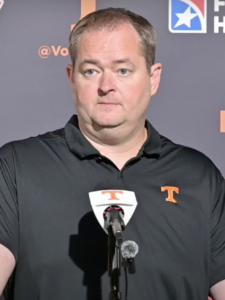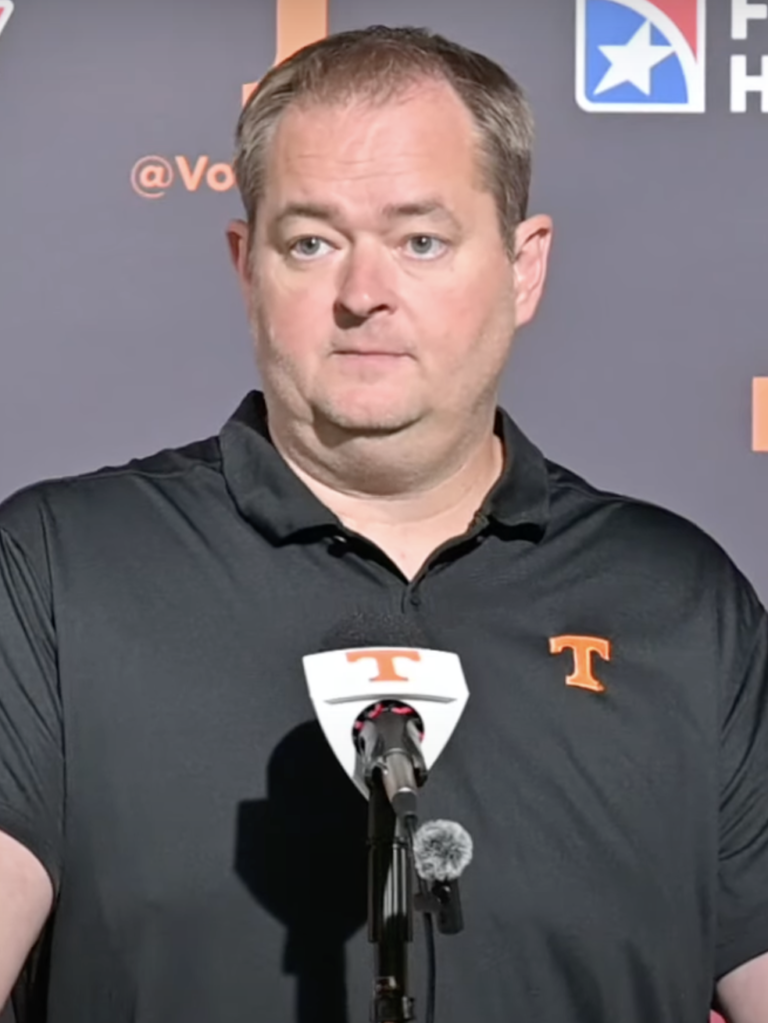The Tennessee Volunteers head coach finds himself in a pressure-cooker environment as questions about his leadership and long-term vision grow louder. After back-to-back seasons that fell short of expectations, the program’s highly anticipated SEC debut turned into a sobering reminder of the gap between ambition and execution. While fans and boosters once rallied behind his high-energy approach and promises of a rapid turnaround, patience is wearing thin. The Volunteers, a storied program with a passionate following, are not accustomed to prolonged mediocrity, and the current climate leaves little room for further missteps.

Adding to the intrigue is the fact that the university’s administration recently doubled down on their commitment, signing the coach to a six-year, $51 million extension. This move was seen as a bold, if controversial, vote of confidence, especially considering the lackluster recent performances. For many supporters, such a significant financial commitment demands immediate results, making the margin for error razor-thin. With that kind of salary and security, the expectation is not just to compete, but to win — and win consistently.
In a bid to jumpstart the rebuild, the coach brought in former NFL executive Jim Nagy, a move designed to strengthen the program’s talent evaluation and recruiting operations. Nagy’s extensive network and proven scouting background were meant to help Tennessee land top-tier athletes capable of competing against SEC powerhouses. However, while recruiting rankings have shown some improvement, translating talent acquisition into on-field success remains an ongoing challenge. The upcoming season will be a critical test of whether this new partnership can yield tangible results.

The SEC is widely regarded as the most competitive conference in college football, and the Volunteers’ underwhelming debut has only intensified scrutiny. Against teams with deep rosters, seasoned coaching staffs, and championship pedigrees, Tennessee’s shortcomings were exposed — both in terms of depth and execution. Critics argue that the team’s game plans have lacked adaptability, with in-game adjustments often coming too late to turn the tide. This has fueled debates over whether the head coach is tactically suited for the grind of an SEC schedule.
Fans and alumni are also voicing concerns about the program’s culture and leadership. While the coach is credited for improving facilities and emphasizing discipline, there is a growing sentiment that these efforts have not translated into a winning mentality on the field. Social media chatter, sports talk radio segments, and booster meetings are increasingly focused on whether Tennessee’s leadership made the right gamble with their long-term investment. The frustration is compounded by seeing rival programs make swift turnarounds under newer hires.

Ultimately, the 2025 season could serve as a defining chapter in the coach’s tenure. With the SEC learning curve behind them, there will be no excuses for continued stagnation. A strong start could calm the storm and restore belief, but another year of inconsistency would almost certainly lead to louder calls for change. For now, all eyes remain fixed on Knoxville, where the Volunteers’ next steps will determine if the program is truly on the road back to prominence — or stuck in a cycle of unmet expectations.
